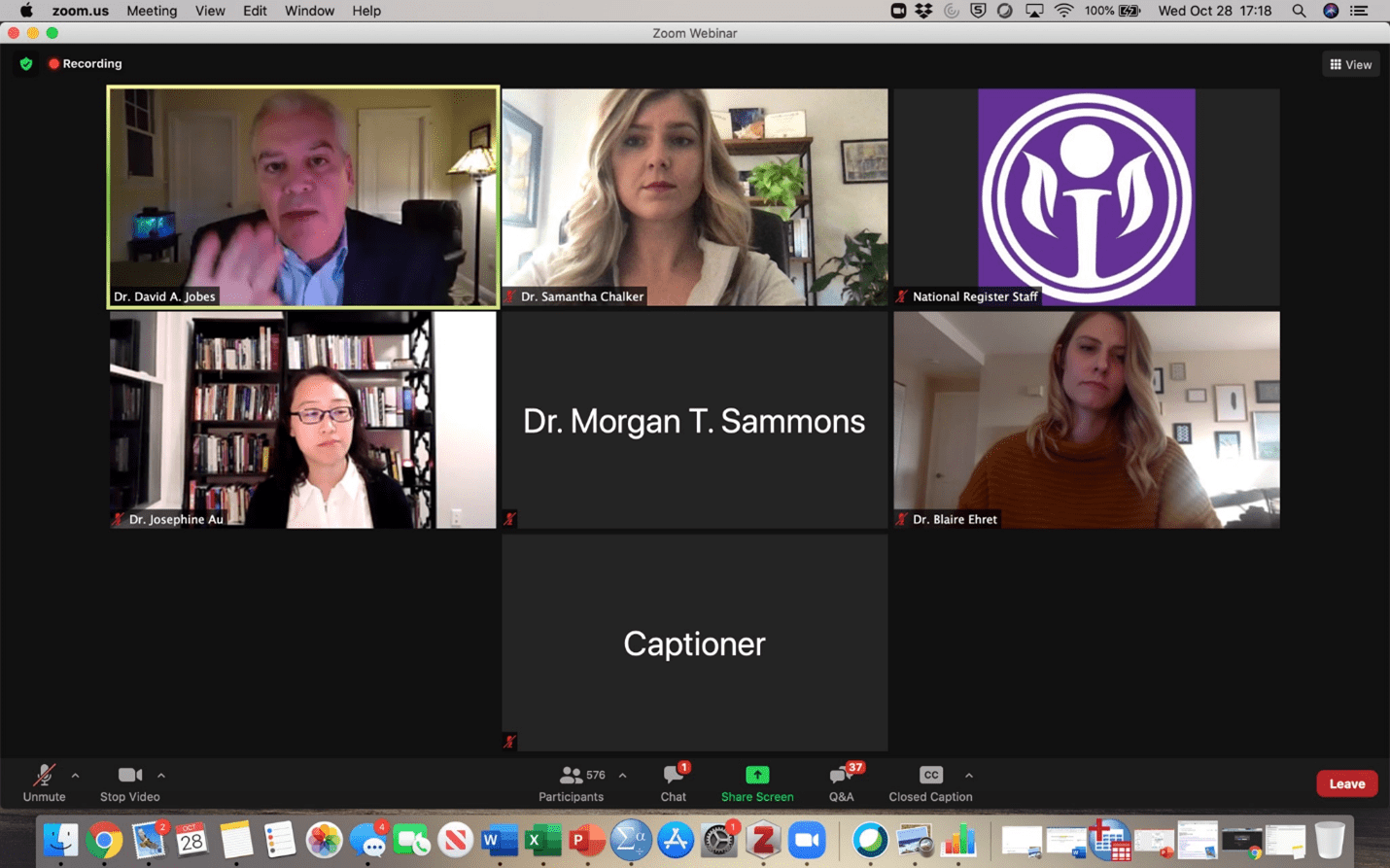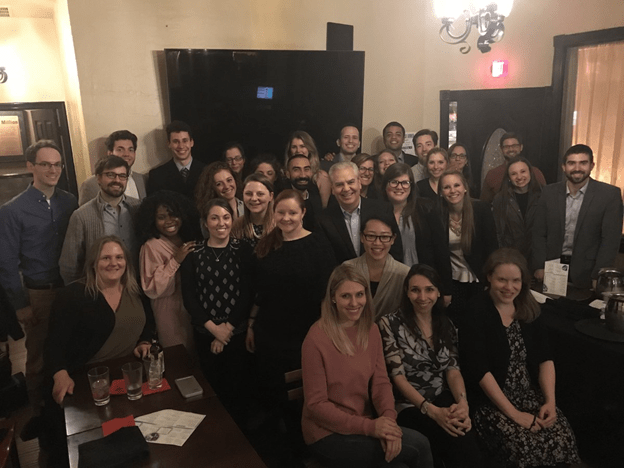I recently wrapped up a memorable series of trainings. Co-sponsored by the National Register for Health Psychologists and CAMS-care, I moderated webinar presentations over successive weeks on clinical suicidology featuring recent graduates of our Ph.D. program at Catholic University. Drs. Blaire Ehret, Josephine Au, and Samantha Chalker expertly led these trainings with hundreds of graduate students in psychology attending each week for a “micro-certificate” training program.
Each of the three nights we presented, we had audiences that ranged from 600 to 800 participants! I was honored—and humbled—to oversee these superb presentations by my amazing former students, now valued colleagues. I also facilitated the question-and-answer phase as dozens of queries came in through chat over the Zoom webinar platform.

The Q&A session was fascinating to me as literally hundreds of grad students pitched questions often focused on marginalized populations, gender fluidity, and LGBTQIA, and commented on the importance of person-first and identity-first ways of talking about different populations. Many of the questions that came in each night centered on these contemporary sociocultural issues that are clearly on the minds of this largely young millennial audience.
To my great joy, I got to take a back seat and facilitate these amazing alums from my Suicide Prevention Lab who expertly handled the queries with knowledge, clinical experiences, a steady eye to the evidence-base, and remarkable candor and honesty. There were of course questions about fear related to asking patients about suicide, as well as nuanced and sophisticated questions about suicide risk factors and evidence-based treatments. Questions related to clinically challenging cases and difficult supervisors (who seem more focused on liability than necessarily clinically saving lives) came up each night. It is hard to describe the joy of seeing young colleagues in whom you have invested countless hours blossom into such superb free-standing experts who taught me a lot as well!
I am now 62 and into the second year of my ten-year personal plan towards retirement. For me, it is bitter-sweet to imagine myself tapping the brakes and dialing back on what has been an incredibly meaningful career. As I reflect on all the hard work and many setbacks as well as achievements, I feel both blessed and humbled to have been able to pursue a career and a cause that has been so rewarding personally and professionally.
As the youngest of three boys, I have always closely observed more senior role models to shape my personal and professional life choices. I am sorry to say that there have been very few role models of those who have gracefully “stepped off the stage” into their retirement. There is all too often a bitterness or resistance to moving out of the spotlight to make room for talented new leaders. But it is my hope to step off the stage with grace when the time comes to hand off the torch to younger colleagues, including my former students, of course.
I remember the last time I saw Dr. Jerome Motto present at the American Association of Suicidology conference. Well into his senior years, Jerry eloquently spoke of his idea to send discharged suicidal patients “caring letters”—his now-famous suicide prevention intervention that reduces deaths by suicide and has been replicated around the world. In his standing-room-only talk, Jerry recounted his early years in combat as a US Army Soldier during World War II, and how simple letters from a high school friend became a lifeline to him as they fought their way to Germany near the war’s end. It was a moving narrative, told so powerfully by one of the original suicide prevention founding fathers, that there was not a dry eye in the house. And there was a heartfelt and sustained standing ovation when Dr. Motto literally stepped off the professional stage. So classy, so humble, so inspiring, as Jerry made room for the younger generation to carry on his legacy.
Psychoanalyst Erik Erikson famously developed an 8-stage model of human development. Stage 7 focuses on the tension of generativity vs. stagnation. As a father of two amazing millennial sons, and as a teacher/mentor to many students, I am firmly immersed in and dedicated to generativity. In effect, it is a kind of psychological investment in and a singular promotion of those who follow. At its best, it is a selfless version of parenting and mentoring not to create clones of one’s self but to recognize and foster the talents and potential of those who are up and coming.
As I steadily march — God willing —towards Stage 8, which focuses on ego integrity vs. despair, I aspire to an integration of life well lived, or as Erikson put it, “…a sense of coherence and wholeness.” In other words, I aspire to wisdom which in my opinion is a highly underrated and underappreciated quality that comes from a well lived life.
As I watched my former students so ably presenting during these recent webinars, I felt such pride and admiration not for how their expertise reflected on me, but for how they have become budding leaders in a movement that has given my own life such purpose and meaning. I reflect on them with reassurance and a kind of peace, that this field and this cause that has meant so much to me will be in good hands.
I fully believe in generativity and the eternal promise of young people to make our challenging world a better place if we properly support them and promote their interests — not for ourselves, but for the greater good of the world.

Catholic University Suicide Prevention Lab reunion dinner 2018
About CAMS-care
At CAMS-care, we offer suicide assessment and prevention training, consulting, and resources. For more information on CAMS, please contact us.
